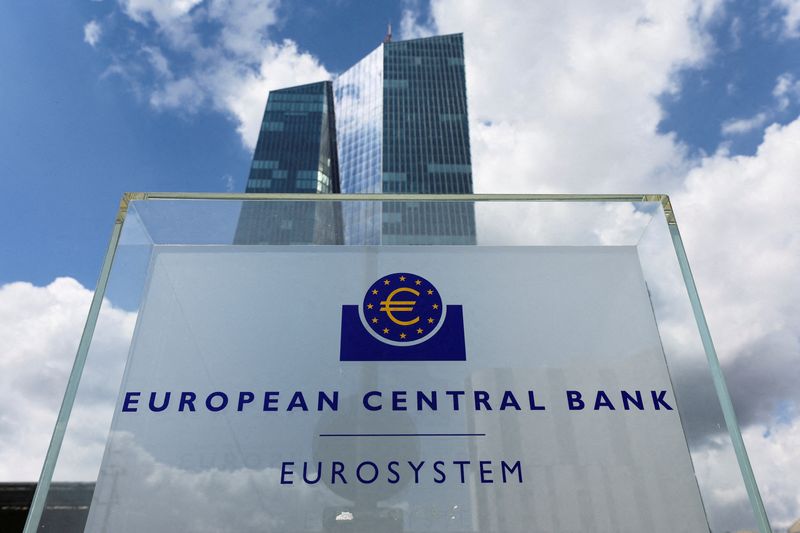FRANKFURT (Reuters) - European Central Bank policymakers feared that inflation may be getting entrenched at their last policy gathering so rates would need to rise further, the accounts of the Oct 26-27 meeting showed on Thursday.
The ECB raised rates by 75 basis points to 1.5% at the meeting to fight sky high inflation, bringing its total hikes to 200 basis points since July for its fastest policy tightening on record.
Policymakers also put the reduction of the bank's 9 trillion euro balance sheet on the agenda - inching closer to unwinding a decade worth of government debt purchases aimed at rekindling inflation that had been undershooting the ECB's objective.
"It was also clear that rates would need to be raised further to reach a level that would deliver on the ECB’s 2% medium-term target," the accounts of the meeting showed.
The ECB added that some policymakers even expressed the view that "monetary tightening would probably need to continue after the monetary policy stance had been normalised and moved into broadly neutral territory".
The 75-basis-point rate hike was supported by a large majority, although a "few" policymaker wanted a smaller, 50-basis-point move.
While the ECB firmly committed to further rate hikes, markets are now expecting a more modest, 50 basis point move on December 15 as a string of policymakers suggested that a slowdown after back-to-back 75 basis point increases was appropriate.

A possible compromise may be that a smaller rate hike is coupled with an early start in the reduction in the portfolio of bonds bought under the ECB's 3.3-trillion-euro Asset Purchase Programme, in a process known as quantitative tightening.
Even if the ECB slows down, markets see the deposit rate doubling to 3% next year as inflation, now at 10.6%, will take years, possibly until 2025, to fall back to the ECB's 2% target.